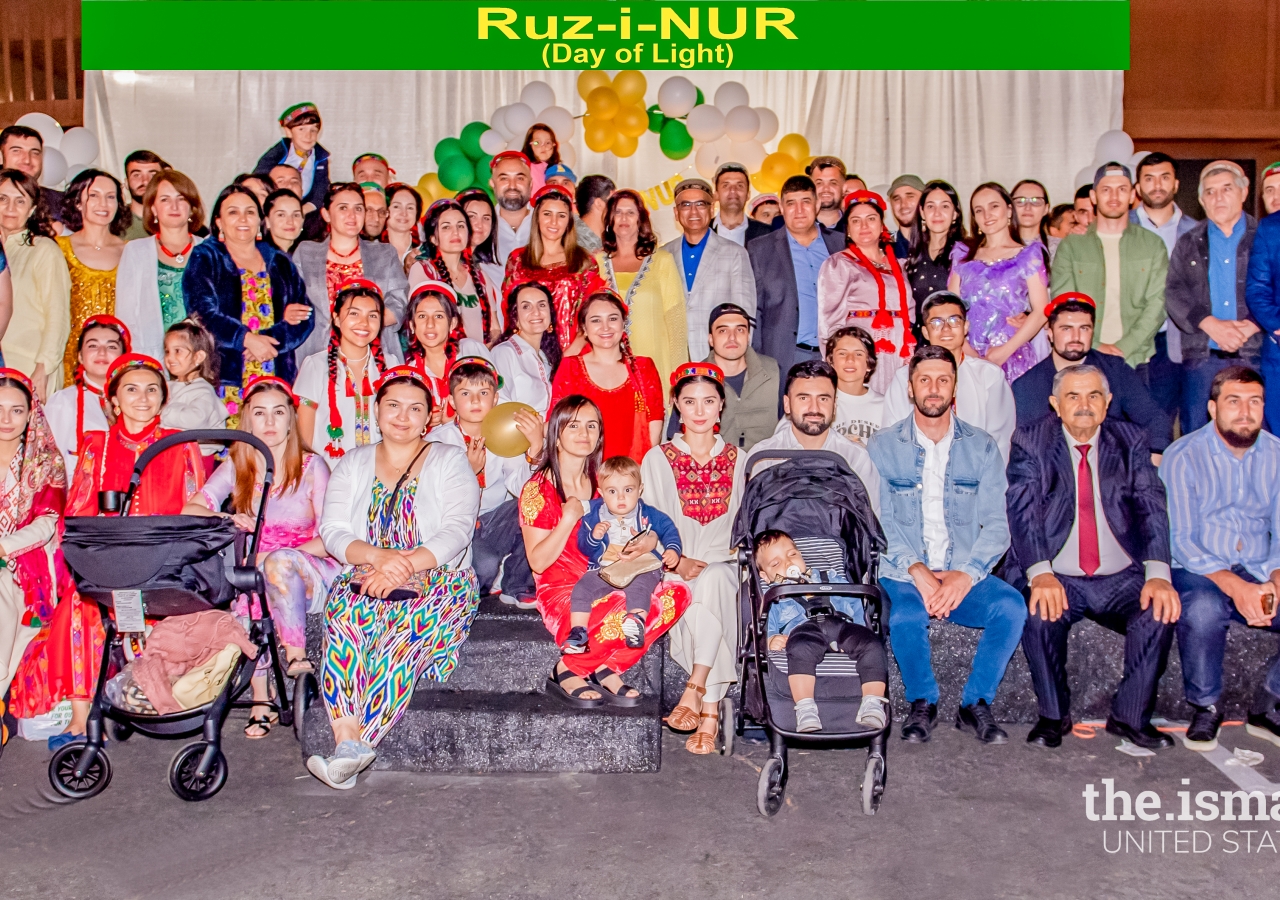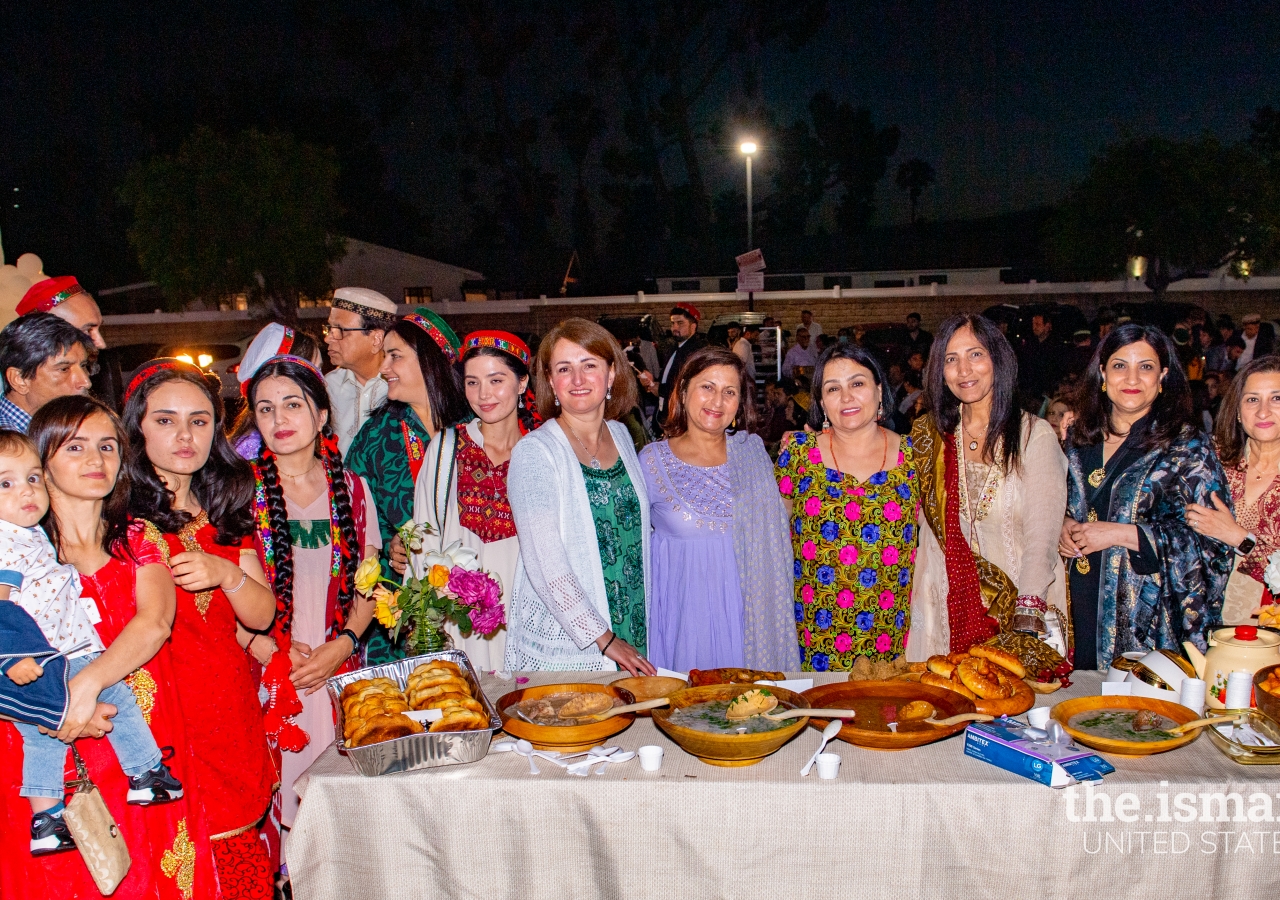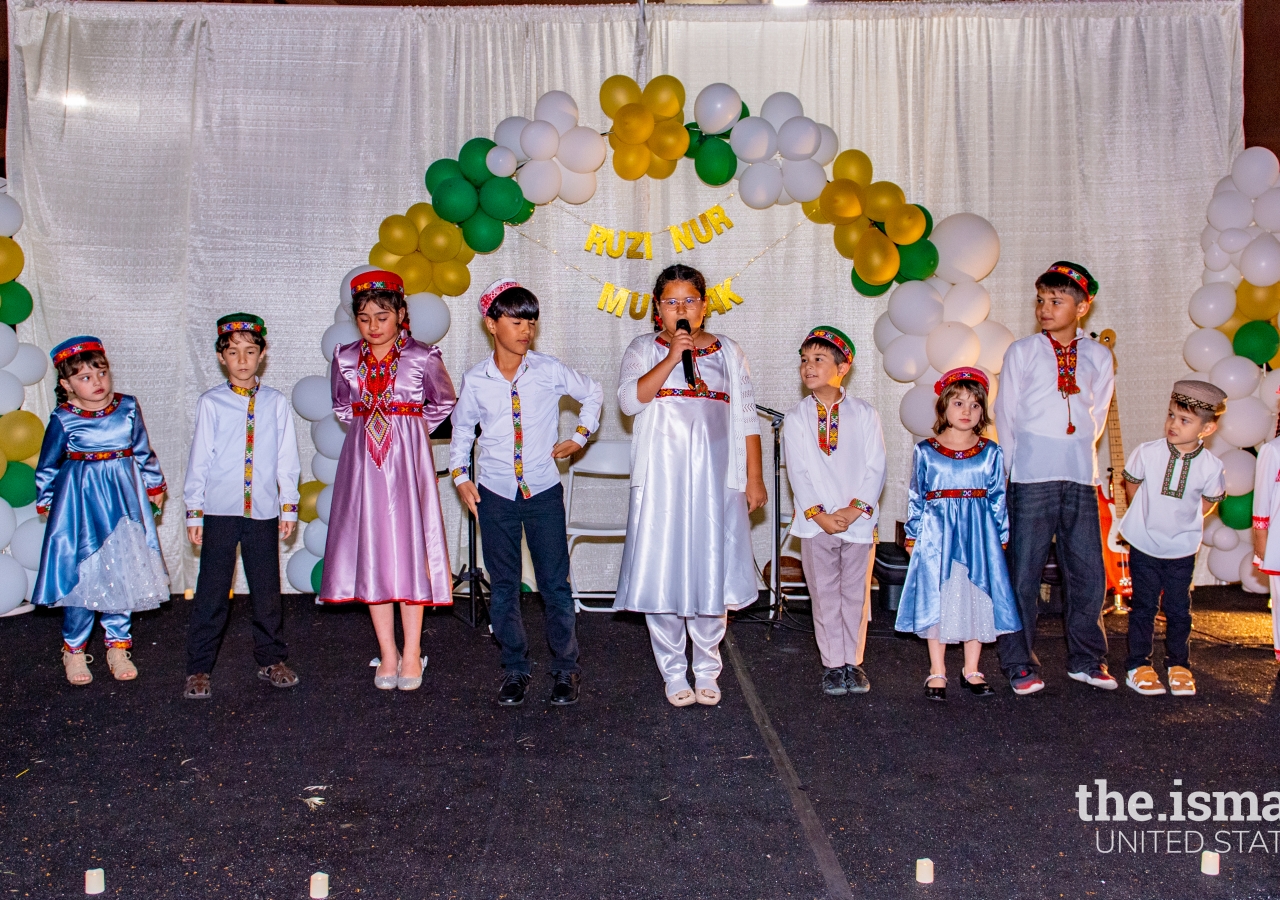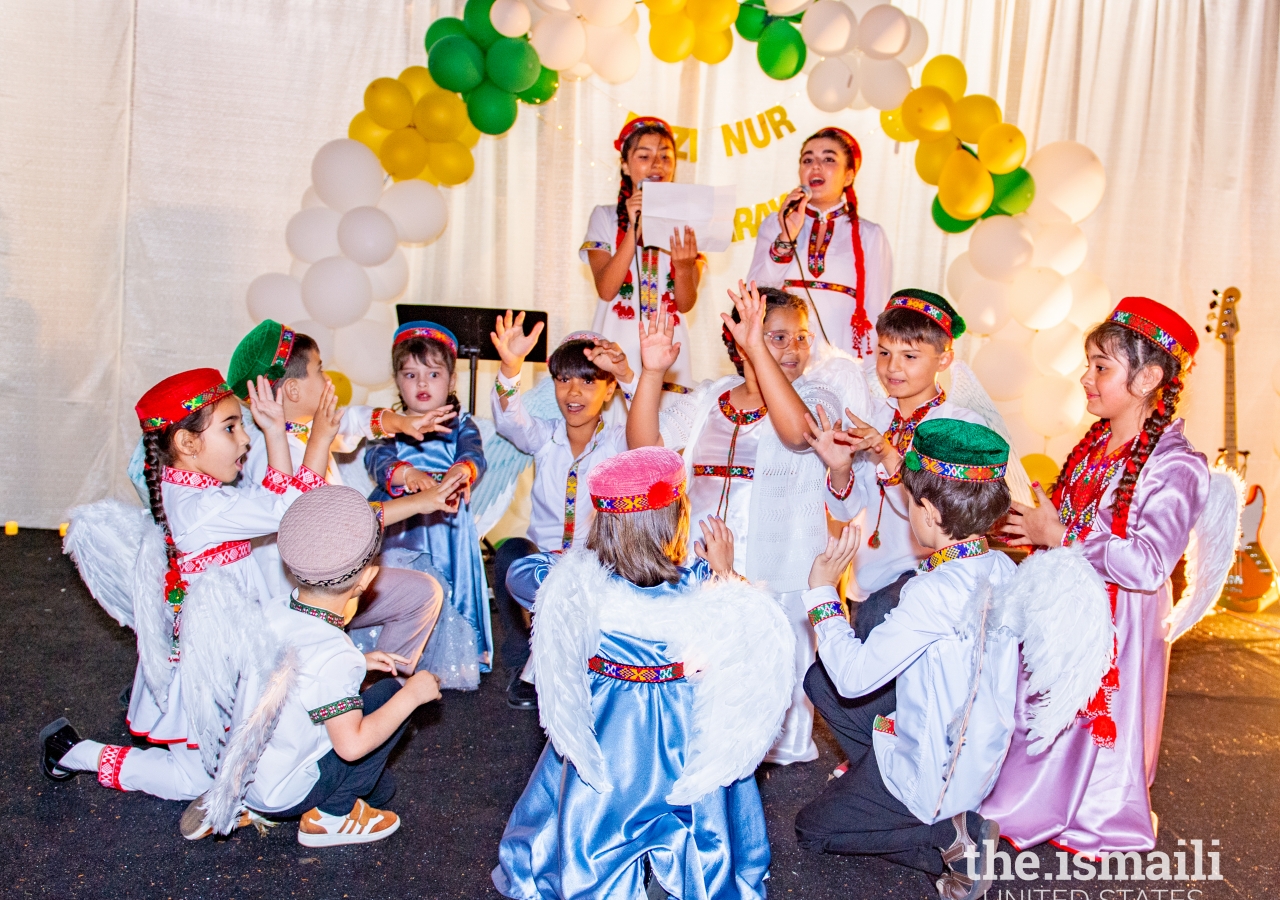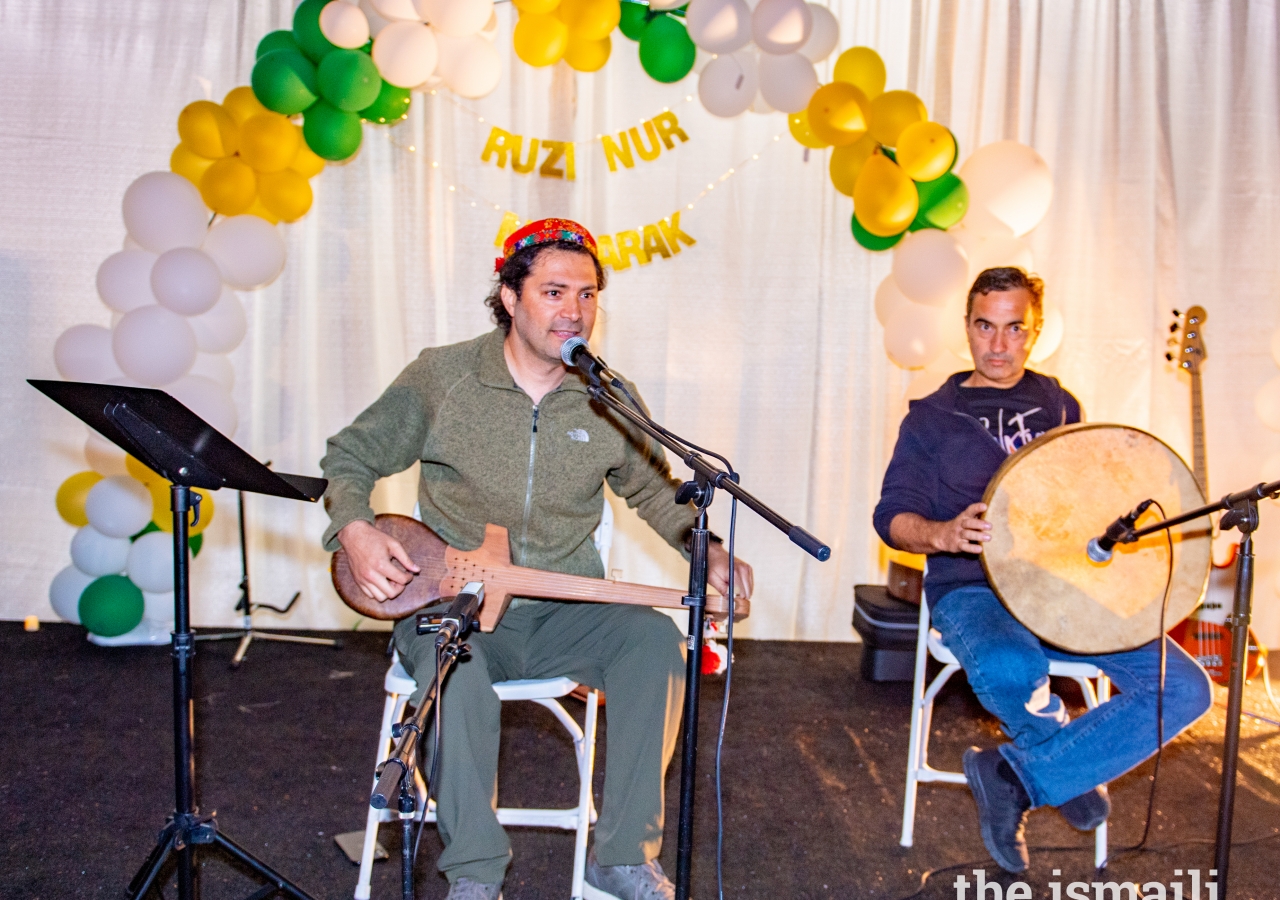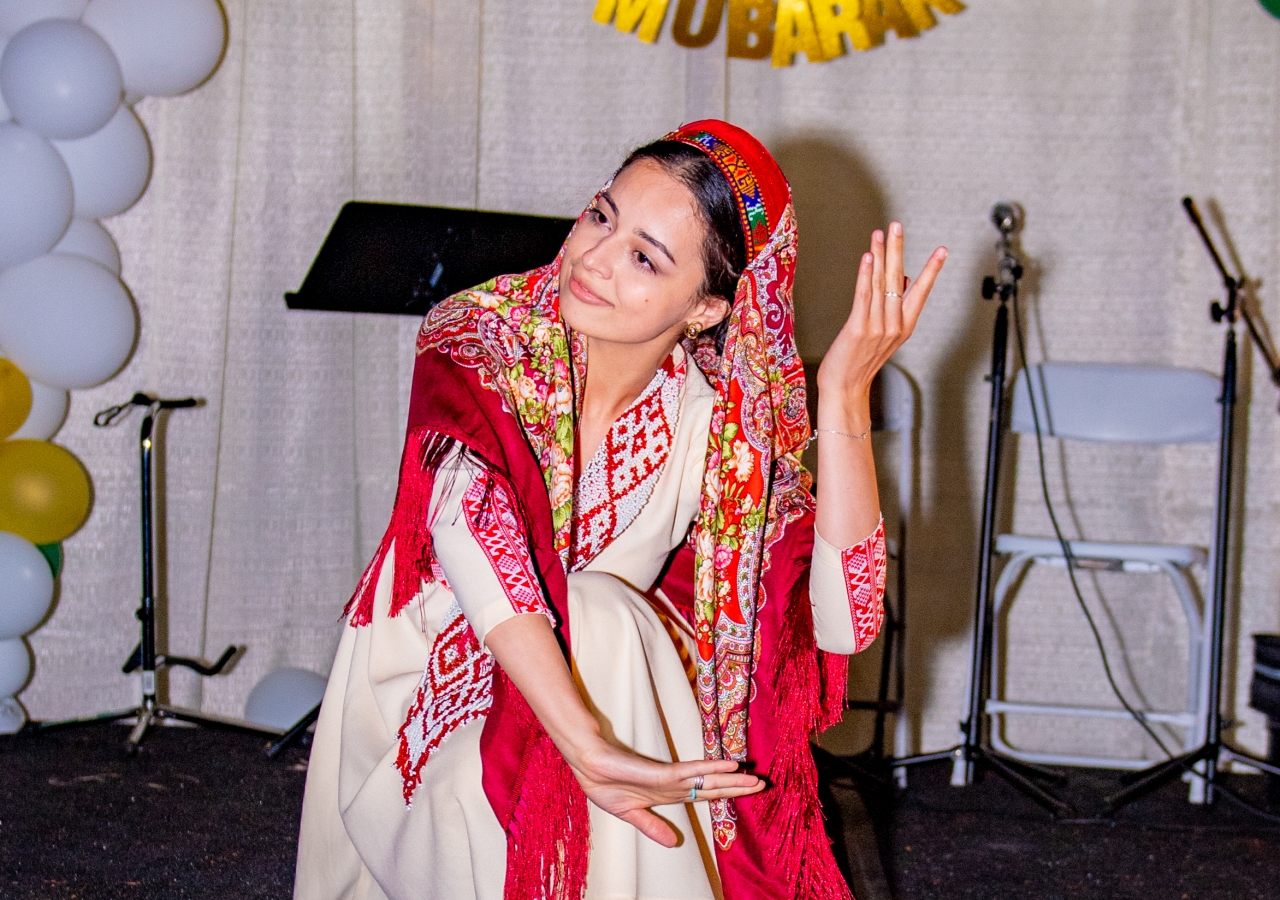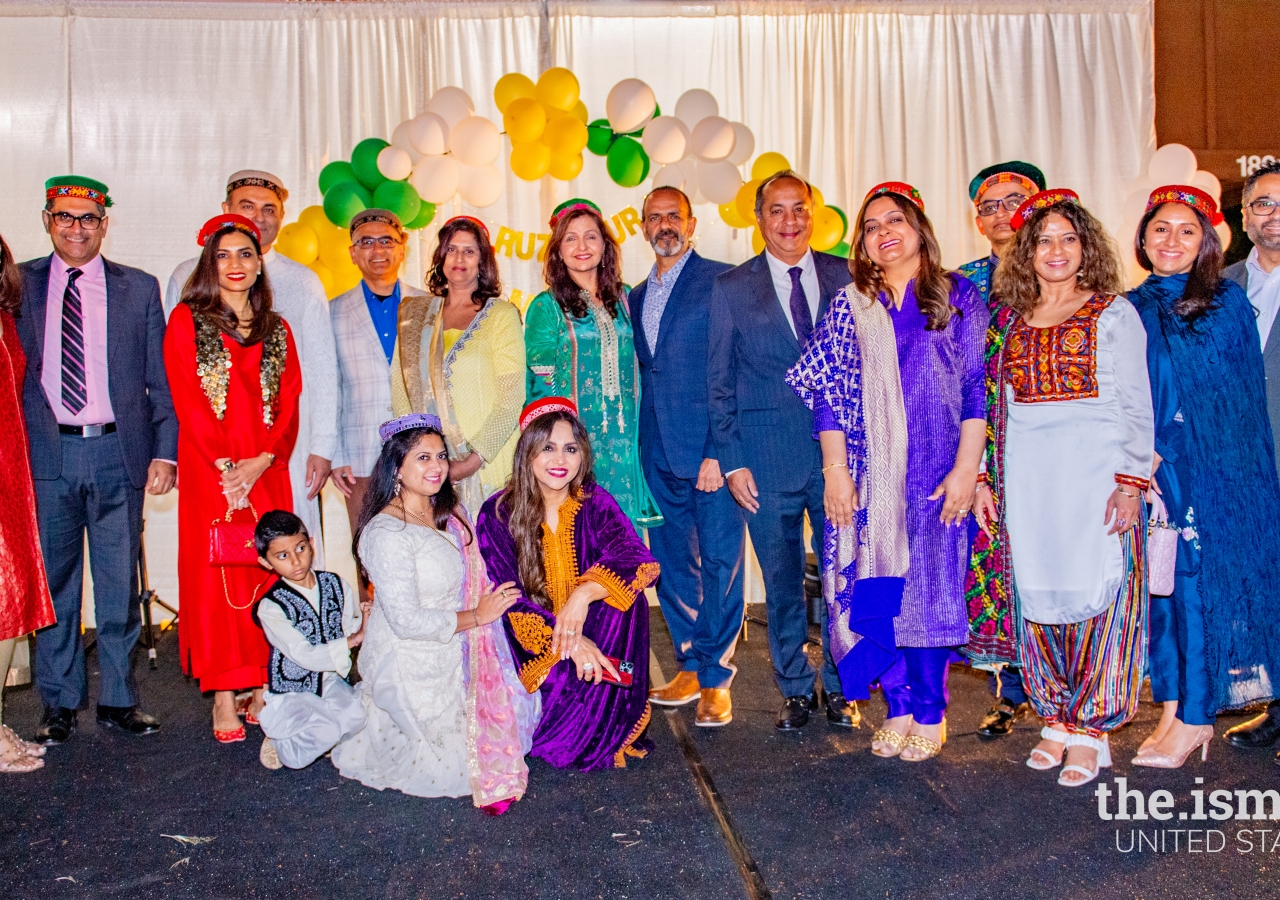For the first time ever, the Greater Los Angeles (GLA) Jamat gathered on May 27, 2023, to celebrate Roz-e-Nur or the Day of Light. Roz-e-Nur commemorates the first formal encounter of the Imam of the Time with the Ismaili Jamat in Tajikistan. After launching relief efforts to support the Pamiri Jamat through the Aga Khan Foundation in 1992, Mawlana Hazar Imam first visited Tajikistan on May 24, 1995.
Since then, Roz-e-Nur has held immense significance for Pamiri Ismailis around the world. Until recently, explained Mahinbonu Alibekova, a student at the University of Central Asia in Khorog, the Jamat in Tajikistan would commemorate the Imam’s mulaqat and his arrival to the Gorno-Badakhshan region as an annual celebration across Ismaili towns and villages. “I’m glad that in some corners of the world, our culture is still being practiced,” she added with hope.
The festivities commenced with an indoor devotional night featuring recitations from the Qur’an and melodious madoh (devotional poetry), followed by a presentation of video clips of the Imam’s visit. Members of the Jamat across traditions were moved to tears and smiling widely as they immersed themselves into the joy of the 1995 mulaqat. The event then transitioned to a decorated outdoor space. There, Pamiri-American students and adults presented poetic, melodic, and instrumental devotional literature.
The evening included graceful song and dance performances by REC students, an exciting trivia game, and engaging cultural learning opportunities. The Jamat then enjoyed a sumptuous homemade meal of Tajik Palau, savory pies, and delicious sweet dishes. The celebration also included thoughtful table exhibits with assorted Pamiri dishes and handicrafts, as well as an energetic dance floor.
“The last two years have been difficult for the Pamiri Jamat of Tajikistan,” event organizer Parastu Aydarsho explained. “We wanted to remind each other about how happy and blessed we are through this celebration.”
Joy and hope radiated from GLA Jamat’s youngest Jamati members as well. “I love to call Tajikistan my home country,” shared 9-year-old Alina Muborakshoeva.“This is the first Pamiri holiday that we’ve ever done in this Jamatkhana, and I’m really happy to see that people are celebrating my culture,” exclaimed the REC student.
The Pamiri Jamat GLA has carried this tradition with it through it transition to the United States. Sabzina Alishoeva, the event’s emcee, explained that Pamiri families continue to gather at parks and homes to celebrate this special day. “It’s a great celebration that everybody looks forward to each year. There is food, dancing, and the recitation of poems honoring Mawlana Hazar Imam. This celebration will be even more fun because we are sharing it with our brothers and sisters,” exclaimed Sabzina, prior to the event’s start.
According to another event organizer, Jalil Yusufbekov, the Jamat worked in teams that leaned on the strengths of both settled Ismailis of Pamiri descent as well as newly arrived murids.
The teams spent over a month planning this large-scale event added Aydarsho. They offered traditional “nazronai moliyavi” or nazrana offerings in the form of time, talent, and other resources. Chef Jumakhonov Muboriz, for example, cooked and coordinated the evening’s main course for the guests. Other members of the Pamiri Jamat baked, planned, and designed parts of the event. Still, others gathered funds within the community to send to FOCUS to commemorate the occasion, explained event organizers.
“It’s been amazing to join Ismailis from the Pamirs celebrating such a momentous occasion,” said Aleem Dinani. He and his wife brought their children to the celebration and explained that it has been enriching for the family to participate in the festivities. “My kids have seen the various ways that our Jamat prays and celebrates, all with the same purpose.”
“It’s nice to see that our Jamats from different places can come together and support each other. We’re embracing different traditions. It’s amazing,” added Aleem, who migrated to the US from Tanzania in 1990. As a parent and as a REC principal, he has high hopes for the vibrant tapestry of Ismailis in the USA. “I’m so excited about how this generation will change and about the bonds our children will be able to build," he said.
These changes are already in motion. “For people outside of Central Asia, it’s difficult to differentiate between Ismailis of Tajikistan, Afghanistan, Russia, etc.” explained Jalil . “So this was a great opportunity for everybody to get acquainted with Ismailis of different traditions. I think our strength as Ismailis lies within our diversity. We share our experiences, learn from each other, support each other and go forward as a strong community.”
STEP student Hilana Nazeri agreed. “This event has been a great way for us to understand the background of the Jamat from Tajikistan,” she said. Hilana was just a toddler when her family moved from Afghanistan to the USA in 2008. Though she grew up in the United States, she appreciates when members of the Jamat often approach her with enthusiasm, eager to learn devotional literature from her tradition, she shared.
As we appreciate the vibrant celebration of Roz-e-Nur in the Greater Los Angeles Jamat, let us continue to embrace diversity within our Jamat and remain hopeful for more opportunities to unite. “We represent a mosaic of cultures and Ismaili Muslim traditions,” explained current San Fernando Valley Mukhi Saheb Muhammad Amirali. Jamati members come from across Afghanistan, Burma, East Africa, Northern Pakistan, South Asia, Tajikistan, and Russia. And the population is growing.
“I hope that our Jamati programs in the USA highlight the very diverse traditions of the Central Asian Jamats from Afghanistan and the Pamiri mountains as well as of our Syrian Jamat,” added Mukhi Amirali. “It has the potential to bring us closer than ever and truly transform us into One Jamat.”
May our celebrations and cultural exchanges inspire understanding and foster lasting bonds of unity as One Jamat, shining brightly as a beacon of hope for the future.

